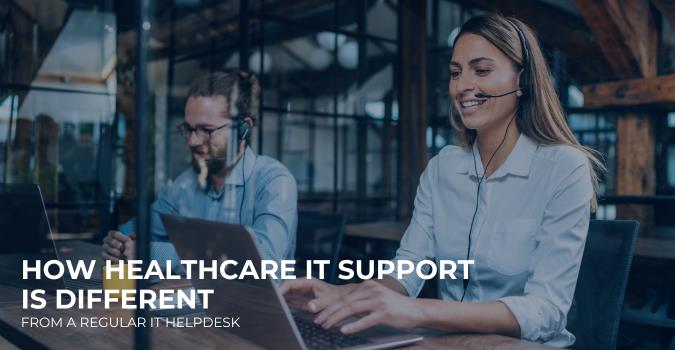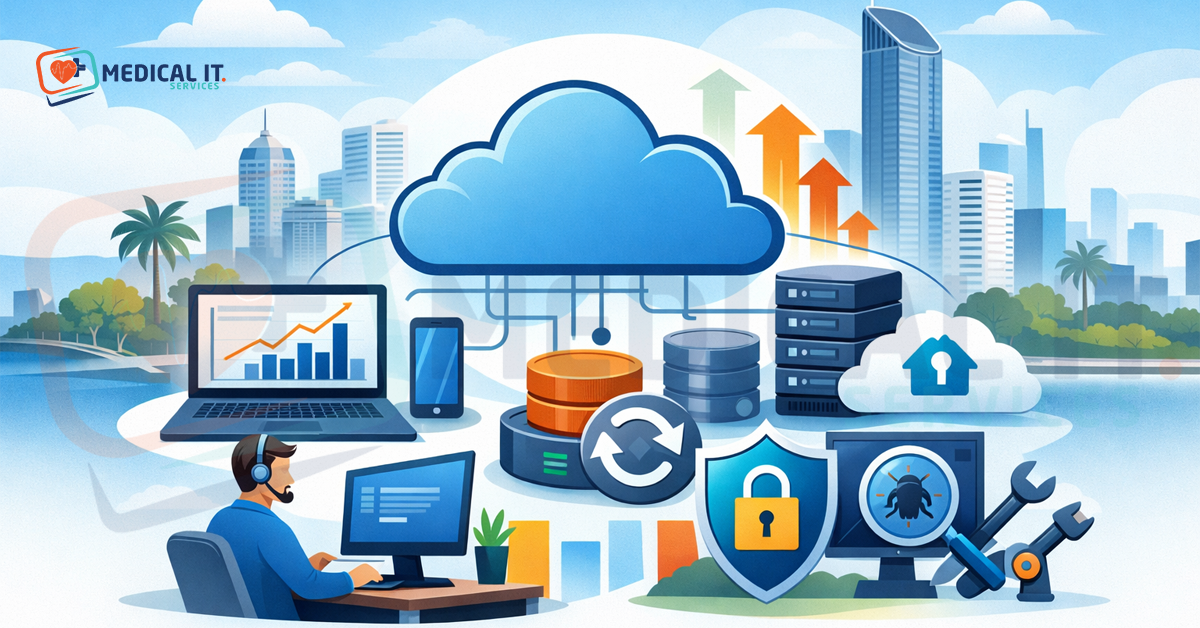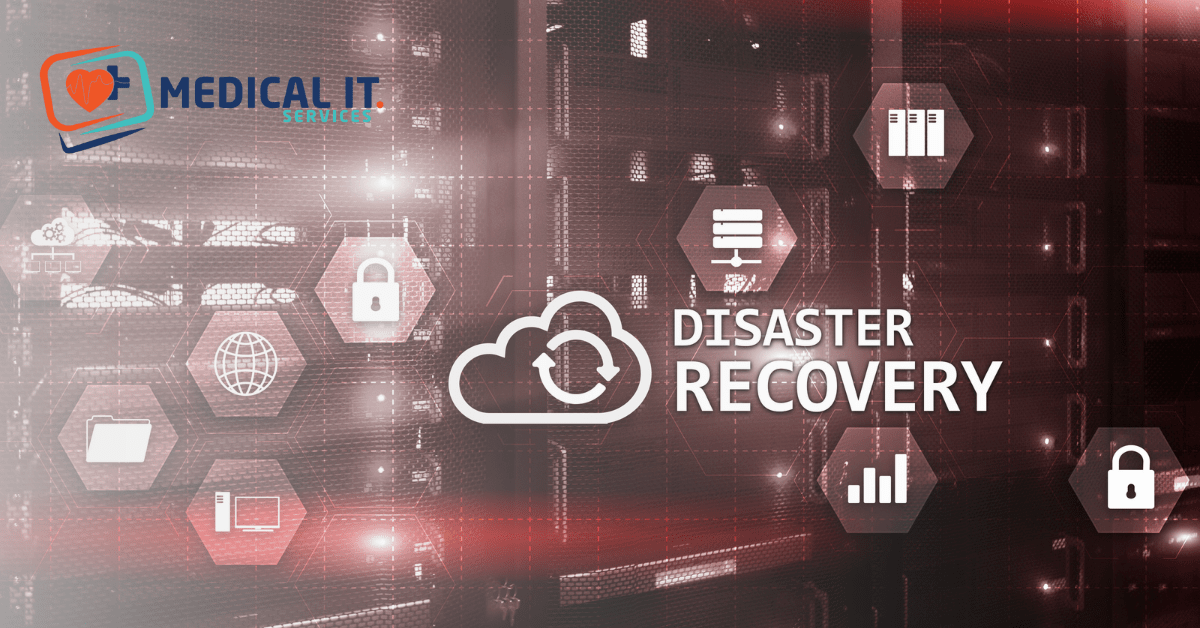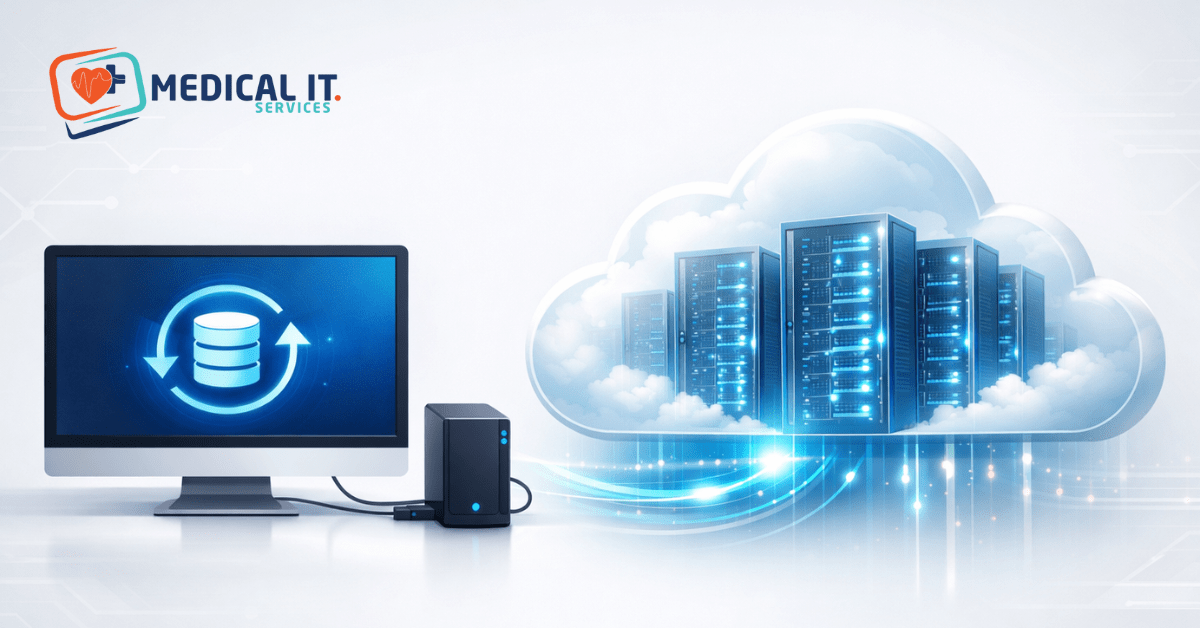Nowadays, every small business it support brisbane cannot function without technology. Daily tasks like creating…

How Healthcare IT Support is Different from a Regular IT Helpdesk
Technology plays a significant role in every business today. It handles emails and manages data, a function that most companies depend on IT systems to keep running smoothly. But when we talked about the healthcare sector, IT support is not just about fixing computers or setting up printers. It is about saving lives and protecting sensitive patient information.
In this article, we will explain how healthcare IT support differs from a regular IT helpdesk, why this difference matters, and how businesses in Australia can choose an exemplary support service.
What is Regular IT Helpdesk Support?
A regular IT helpdesk is a team that helps people with computer and technology problems. Their job is to ensure that computers, software, and networks function correctly.
Some things a normal IT helpdesk does:
- Fix computers and software when they stop working
- Help with forgotten passwords or login issues
- Set up email and internet connections
- Make sure files are saved and backed up
Many businesses, like offices and shops, use this kind of support. They often look for small business IT support near me or choose managed IT support services to take care of these jobs.
What is Healthcare IT Support?
Healthcare IT support is very different because the healthcare industry has special needs. It is not just about keeping systems online; it is about making sure patient care is never interrupted. For example, NSW Health IT support handles thousands of patient records, medical devices, and hospital systems every day.
Healthcare IT support includes:
- Managing Electronic Health Records (EHR) systems
- Securing sensitive patient data
- Following strict healthcare regulations like Australian Privacy Principles
- Connecting medical devices and healthcare apps
- Supporting telehealth and online consultations
This is why healthcare providers cannot rely on a regular IT helpdesk. They need experts who understand the risks and responsibilities of handling medical information.
Key Differences Between Healthcare IT Support and a Regular IT Helpdesk
1. Compliance and Data Privacy
Hospitals and clinics must follow strict rules to keep patient information safe. In Australia, healthcare providers must comply with the Australian Privacy Principles (APPs) and other regulations. Most mistakes can lead to heavy fines and loss of trust.
Regular IT helpdesks focus on general security, but healthcare IT specialists make sure every system meets compliance requirements.
2. Handling Sensitive Patient Data
Patient data is highly private. A data leak can harm patients and damage a hospital’s reputation. Healthcare IT teams use strong security to keep patient information safe all the time.
Regular IT support does not usually deal with such sensitive information. This is one of the most significant differences.
3. Integration with Medical Systems
Hospitals and clinics use special systems like EHR, lab management tools, and radiology software. These systems must work together without errors. Healthcare IT experts know how to manage these integrations.
Regular IT teams usually deal with office tools like Microsoft Office or email servers, which are much simpler.
4. 24/7 Availability and Critical Response
In healthcare, downtime can cost lives. If a hospital system goes down, doctors cannot access patient records, and treatments can be delayed. That’s why healthcare IT support must be available 24/7 with fast response times.
A regular IT helpdesk might only work during office hours and does not face life-or-death situations.
5. Advanced Cybersecurity Measures
Hackers often target healthcare data because it is very valuable if stolen. Healthcare IT support uses advanced cybersecurity tools like multi-layer encryption, threat monitoring, and incident response.
While regular IT helpdesks do offer security, the level of protection is usually not enough for hospitals or clinics.
Why Healthcare Providers Should Not Rely on a Regular IT Helpdesk
Here’s why a regular IT helpdesk is not enough for healthcare:
- Risk of breaking the rules: This can lead to big fines.
- Lack of domain knowledge: Regular IT staff do not understand medical systems.
- Patient safety: Delays in IT support can affect treatment and care.
This is why most healthcare providers use managed IT support services that specialise in healthcare.
Role of Managed IT Support Services in Healthcare
Managed IT support involves outsourcing your IT operations to experts who monitor, maintain, and secure your systems 24/7. For healthcare, this is the safest option because:
- They keep an eye on systems all the time to stop problems before they start.
- They manage data backups and disaster recovery to keep patient data safe.
- They ensure your systems meet all compliance requirements.
If you are a healthcare provider in Australia, you can find local services like IT support in Sydney or NSW Health IT support that understand your needs.
How to Choose the Right Healthcare IT Support Provider
Here are a few things to look for:
1. Experience in Healthcare
Not every IT company understands healthcare systems. Healthcare IT involves Electronic Health Records (EHR), medical imaging systems, and telehealth platforms. These systems are very different from normal office software.
If your IT provider has experience in healthcare, they will:
- Know how to set up and maintain EHR systems.
- Understand compliance laws like Australian Privacy Principles (APPs).
- Be able to fix problems quickly without affecting patient care.
Example: If a clinic’s patient record system crashes, an experienced healthcare IT team can restore it fast without data loss. A regular IT team might take longer or make mistakes.
2. 24/7 Availability
Healthcare never sleeps. Hospitals and clinics operate day and night. If something breaks at 2 AM, you cannot wait until the next morning.
A good healthcare IT support provider should:
- Offer round-the-clock monitoring.
- Respond to issues anytime, even on weekends or holidays.
- Have fast response time SLAs (Service Level Agreements).
Example: If a hospital system goes down during a night emergency, the IT team must fix it immediately to avoid putting patients at risk.
3. Strong Security Practices
Patient information is very private. Hackers attack healthcare systems because this information is worth a lot. A good IT provider should use advanced security measures like:
- Data encryption (so stolen data is useless to hackers).
- Firewalls and intrusion detection systems.
- Regular security audits to find and fix weaknesses.
- Multi-factor authentication for staff logins.
Example: If a cyberattack happens, the IT provider should quickly detect and block it before any data is stolen.
4. Local Presence
Having local support in Australia is very helpful. If you are in Sydney, you should choose a provider that offers IT support in Sydney or nearby services.
Why is local presence important?
- On-site support: If hardware fails, a local team can come quickly.
- Understanding local laws: Australian IT providers know local privacy and healthcare rules.
- Better communication: Same time zone and language make support easier.
Example: If your clinic in Sydney needs urgent hardware repair, a local IT provider can send a technician the same day.
If you run a clinic or a small medical practice, you can search for small business IT support near me to find local experts.
Conclusion
Healthcare IT support differs from regular IT helpdesk support. It requires specialised knowledge, strict security, and constant availability. For hospitals, clinics, and other healthcare providers, choosing the right IT partner is critical for patient safety and compliance.
If you are looking for IT support in Australia, consider a provider that offers managed IT support services for healthcare. Whether you are in Sydney or anywhere else, make sure your IT team understands the unique challenges of the healthcare industry.



